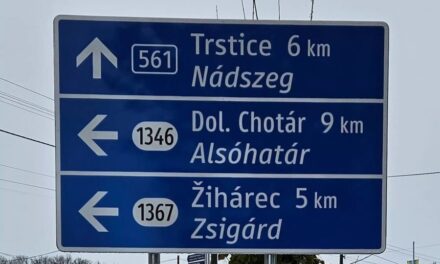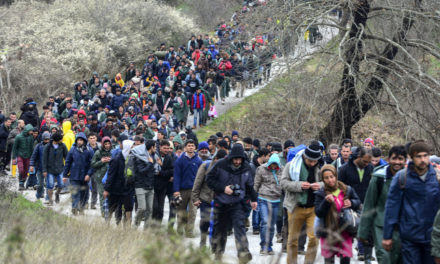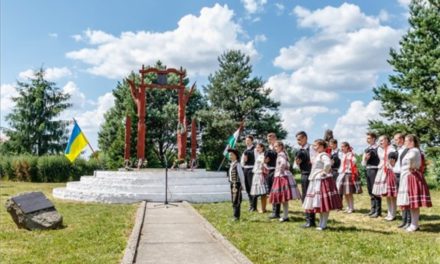The Transcarpathian Hungarians and the Northern Bukovina Romanians evaluate the law on the rights of national minorities adopted by the Ukrainian parliament last week as a positive development, but both communities consider this decision only the first step in the direction of settling the discriminatory measures accumulated over the years. Strong doubts surround the implementation of the legislation.
According to the Kyiv government, the new law on the rights of national minorities takes into account the expert opinion of the Council of Europe and its bodies and restores the previous rights of minorities in many areas, except for Russian-speaking ones. In relation to the language of secondary school and vocational education, the law stipulates that, in addition to the Ukrainian language and literature, the subjects teaching the history of Ukraine and knowledge of national defense must also be taught in the state language. In addition, any educational institution can expand the list of subjects taught in Ukrainian under its own authority.
The Subcarpathian Hungarian Teachers' Association (KMPSZ), which has a three-decade history, states in relation to the new law: even if it does not restore full-scale education in the mother tongue, it will limit the subjects that must be taught in Ukrainian to the Ukrainian language and literature, as well as the history of Ukraine. At the same time, the announcement of the KMPSZ notes that the issue of the use of the Hungarian language in state vocational schools, technical institutes and higher education is still not settled.
Apart from the education issue, the Hungarian organization made a number of comments. One of these is that the competence of the minority law should extend beyond settlements and cities to small regions and districts where the proportion of the given minority reaches the proportion accepted in the law, and in this case they insist on ten percent, after this was ensured by the regional languages of 2012 legislation on its use.
According to György Dunda, the editor of Kárpáti Igaz Szó, every proposal is worth as much as it is implemented. He sees this as the first case since 2017 when we can talk about substantive, forward-looking, constructive minority ideas.
The Romanian community in Ukraine also considers the legislation to be a step forward compared to the discriminatory legal framework developed since 2017, but they also consider the measure to be only a start, as they also believe that there is still a lot to be done in terms of eliminating deprivation of rights. School director Ștefan Mitric, president of the cultural association of Romanians living in the Chernivtsi region and also a member of the National Council of Romanians in Ukraine, told the Libertatea portal that the law was the result of a compromise, which represents Kyiv's first appreciable step towards minorities in the past six years.
"Now they plan to teach Ukrainian language and literature, Ukrainian history and patriotic education in the state language. At the last minute, a surprise clause was added to the law, according to which educational institutions can decide to teach other subjects in Ukrainian. We take the parents' opinion into account, and if we have real institutional autonomy, we will do everything we can to keep education in our mother tongue."
Mitric said.
According to Aurica Bojescu, secretary of the Interregional Union of the Romanian Community of Ukraine, the final text of the law has not yet been seen, so there may still be many unknown details, but this is also a small victory for the minorities.
"You must not stop here. We will initiate further negotiations with the Ukrainian authorities," emphasized Bojescu. As he put it: it is necessary to return to the rights of which they were deprived. "The law is about minority classes, and we want to return to the concept of minority schools. It's a step forward, but there's still a lot to do."
said the secretary of the Romanian organization.
According to Sergiu Barbuța, president of the "Valea Prutului" Cultural Society, it is important to monitor the application of the law.
"The situation in practice must be constantly evaluated. Are the national minorities satisfied, is the right to education in the mother tongue really guaranteed, is there no pressure on the teachers? This is a positive decision, but it is difficult to evaluate at the moment, because a difficult period is coming in relation to putting it into practice. I don't rule out that there will be new surprises"
Barbuța said.
Five politicians from Transcarpathia - Zoltán Babják, mayor of Beregszász, Judit Petei, representative of Subcarpathian County Council, Károly Rezes, president of Beregszász District Council, József Rezes, president of the Ukrainian-Hungarian Regional Youth Development Foundation and László Zubánics, president of the Ukrainian Hungarian Democratic Alliance - wrote an open letter to Charles Michel, President of the European Council, and Hungarian Prime Minister Viktor Orbán, in which they ask for support for the decision to start negotiations on Ukraine's membership in the European Union. According to them, in the past year, Ukraine has taken great steps in implementing the recommendations of the European Commission on the rights of national minorities, and the new draft law adopted by the Ukrainian parliament "essentially reflects the interests of national minorities and enjoys our full support." At the same time, they note: we also trust that all the provisions adopted in the above-mentioned comprehensive law - taking into account all the proposals submitted by the NGOs of Transcarpathian Hungarians - will be incorporated into the normative documents of the Ukrainian legislature.
Featured Image: pexels.com












